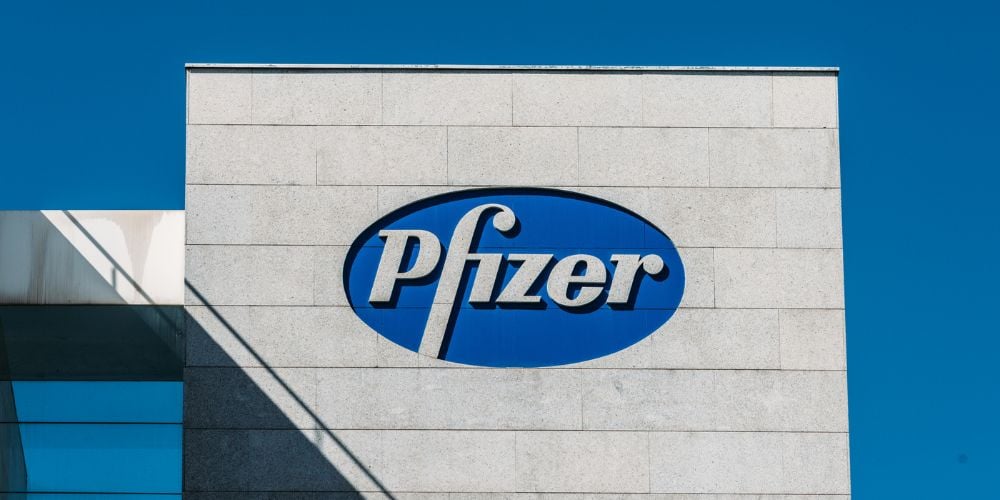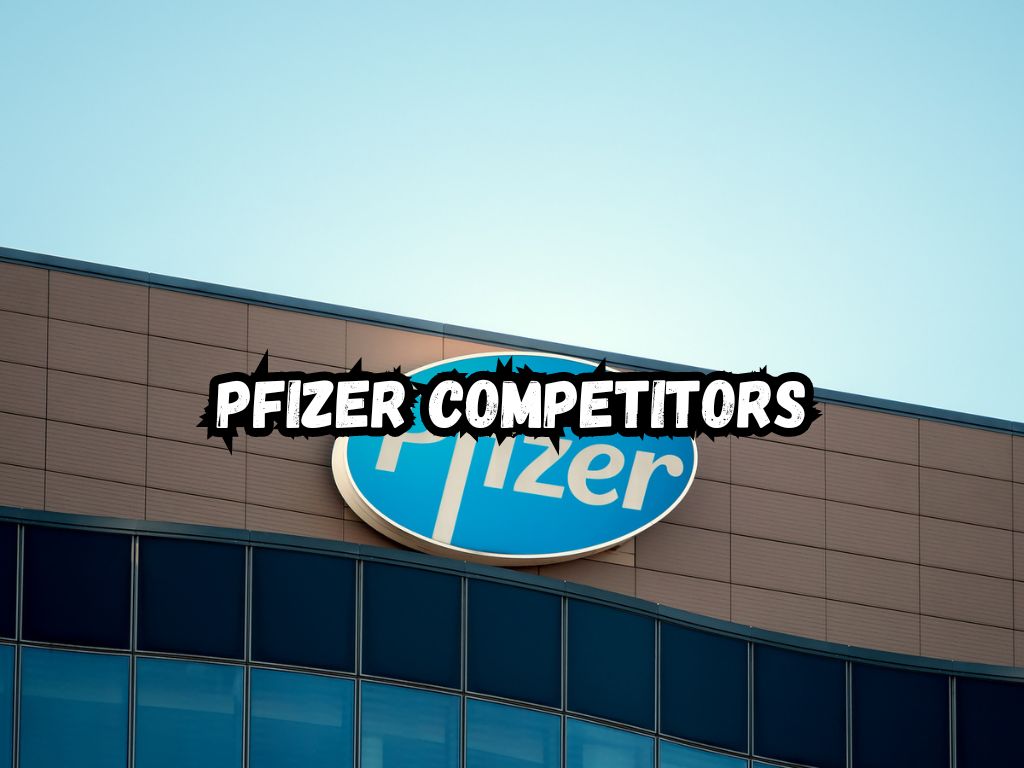In the fiercely competitive global pharmaceutical industry, understanding the landscape and analyzing competitors is crucial for companies like Pfizer to thrive.
As one of the largest pharmaceutical companies globally, Pfizer faces stiff competition from several key players who constantly strive to gain market share and drive innovation.
This article aims to provide a comprehensive overview of Pfizer Competitors, shedding light on their strategies, strengths, weaknesses, and market positioning.
Pfizer Competitors
Competitor Analysis: Johnson & Johnson
Johnson & Johnson (J&J), an American multinational corporation, is a formidable competitor in the pharmaceutical industry.
With a diverse portfolio of products spanning pharmaceuticals, medical devices, and consumer goods, J&J has established a strong global presence.
The company’s pharmaceutical division primarily focuses on areas such as immunology, oncology, and cardiovascular diseases.
Despite its broad product range, J&J faces certain weaknesses, such as ongoing litigation cases related to its talc-based products.
However, the company’s key strength lies in its ability to leverage its brand reputation, extensive distribution channels, and strong research capabilities to maintain a competitive edge.

Competitor Analysis: Roche
Roche, a Swiss multinational healthcare company, is another major competitor for Pfizer.
Renowned for its expertise in biotechnology and oncology, Roche has achieved remarkable success through its innovative therapies and diagnostics.
The company invests heavily in research and development, enabling it to bring novel treatments to market.
Roche’s portfolio includes blockbuster drugs like Herceptin and Avastin, which have garnered significant market share.
Additionally, the company’s emphasis on personalized medicine and molecular diagnostics has positioned it as a pioneer in precision healthcare.
However, Roche faces challenges in the form of increasing competition, particularly in the rapidly evolving field of oncology.
Competitor Analysis: Eli Lilly
Eli Lilly, an American pharmaceutical giant, specializes in areas such as diabetes, oncology, neuroscience, and immunology.
With a rich history dating back over a century, Eli Lilly has established a strong global presence and a portfolio of successful drugs, including Cialis and Humalog.
One of Eli Lilly’s key strengths lies in its extensive pipeline of potential blockbusters, which fuels its growth prospects.
The company’s weak points, however, include patent expirations for some of its major products, resulting in increased competition from generic manufacturers.
Nonetheless, Eli Lilly’s focus on innovation, strategic partnerships, and emerging markets contributes to its competitiveness within the industry.
Competitor Analysis: AbbVie
AbbVie, a spin-off from Abbott Laboratories, is a research-driven biopharmaceutical company.
With a primary focus on immunology, oncology, and virology, AbbVie has produced several successful drugs, most notably Humira, the world’s top-selling pharmaceutical product.
AbbVie’s strong market presence and continued investment in research and development have allowed it to maintain a competitive advantage.
Nevertheless, one of its significant challenges lies in the upcoming patent expiration of Humira, which could result in increased competition from biosimilar manufacturers.
Consequently, AbbVie is diligently working on developing new therapies to offset potential revenue losses from these patent expirations.
Competitor Analysis: Novo Nordisk
Novo Nordisk, a Danish multinational pharmaceutical company, primarily focuses on diabetes care.
With an extensive product portfolio covering insulin, GLP-1 receptor agonists, and other diabetes treatments, Novo Nordisk has cemented its position as a leader in this therapeutic area.
Novo Nordisk’s commitment to innovation, patient-centric approach, and strategic partnerships have contributed to its growth and success.
However, the company faces challenges posed by increasing competition in the diabetes market and emerging therapies targeting diabetes management.
Regardless, Novo Nordisk’s strong brand recognition and deep understanding of the diabetes segment provide a solid foundation for its ongoing competitiveness.
Competitor Analysis: Merck
Merck, known as MSD outside the United States and Canada, is a global pharmaceutical company specializing in various therapeutic areas, including oncology, vaccines, infectious diseases, and animal health.
Merck’s innovative products have made a significant impact in healthcare, including the breakthrough drug Keytruda, an immunotherapy treatment widely used in cancer therapy.
With a commitment to research and development, Merck continually advances its pipeline to address unmet medical needs.
However, like its competitors, Merck faces challenges such as patent expirations and increasing pressure from generic alternatives.
Nevertheless, its strong market presence, global alliances, and dedication to scientific advancements ensure Merck remains a significant player in the pharmaceutical industry.

Comparative Analysis and Key Takeaways
A comparative analysis of Pfizer’s major competitors reveals common themes and unique considerations for each company.
Despite the challenges faced by all major pharmaceutical firms, including patent expirations, increased generic competition, and R&D costs, these competitors continue to focus on innovation, market expansion, and strategic partnerships to maintain their competitive edge.
As the pharmaceutical landscape evolves, factors such as technological advancements, regulatory changes, and shifting patient needs will shape the competitive environment.
It is essential for Pfizer and its competitors to adapt and evolve their strategies to stay ahead in this rapidly changing industry.
Frequently Asked Questions
What are Pfizer’s main competitors in the USA?
Johnson & Johnson, Roche, Eli Lilly, AbbVie, Novo Nordisk, and Merck are all major competitors of Pfizer in the USA.
Who are the top global competitors of Pfizer?
The top global competitors of Pfizer include Johnson & Johnson, Roche, Eli Lilly, AbbVie, Novo Nordisk, and Merck.
How does Pfizer’s product range compare to its competitors?
Pfizer’s product range spans a wide spectrum of therapeutic areas, from cardiovascular and immunology, to oncology and vaccines. Each competitor has its own areas of expertise and focus, leading to a varied product portfolio among the competitors.
What are the growth prospects for Pfizer and its competitors?
Growth prospects for Pfizer and its competitors depend on several factors, including maintaining a strong pipeline, successfully launching new products, expanding into emerging markets, and responding to market dynamics. The ability to adapt and innovate in the rapidly changing pharmaceutical landscape will be critical for sustained growth.
Conclusion
The pharmaceutical industry is characterized by intense competition, with Pfizer’s major competitors making significant strides in their respective fields.
Johnson & Johnson, Roche, Eli Lilly, AbbVie, Novo Nordisk, and Merck each possess unique strengths, weaknesses, and strategies that contribute to their ongoing competitiveness.
As Pfizer navigates this competitive landscape, awareness of its rivals’ positioning, market presence, and growth strategies remains crucial.
By continuously analyzing and adapting, Pfizer can effectively respond to emerging trends, capitalize on new opportunities, and maintain its position as a leading player in the global pharmaceutical industry.


 Tags:
Tags:










